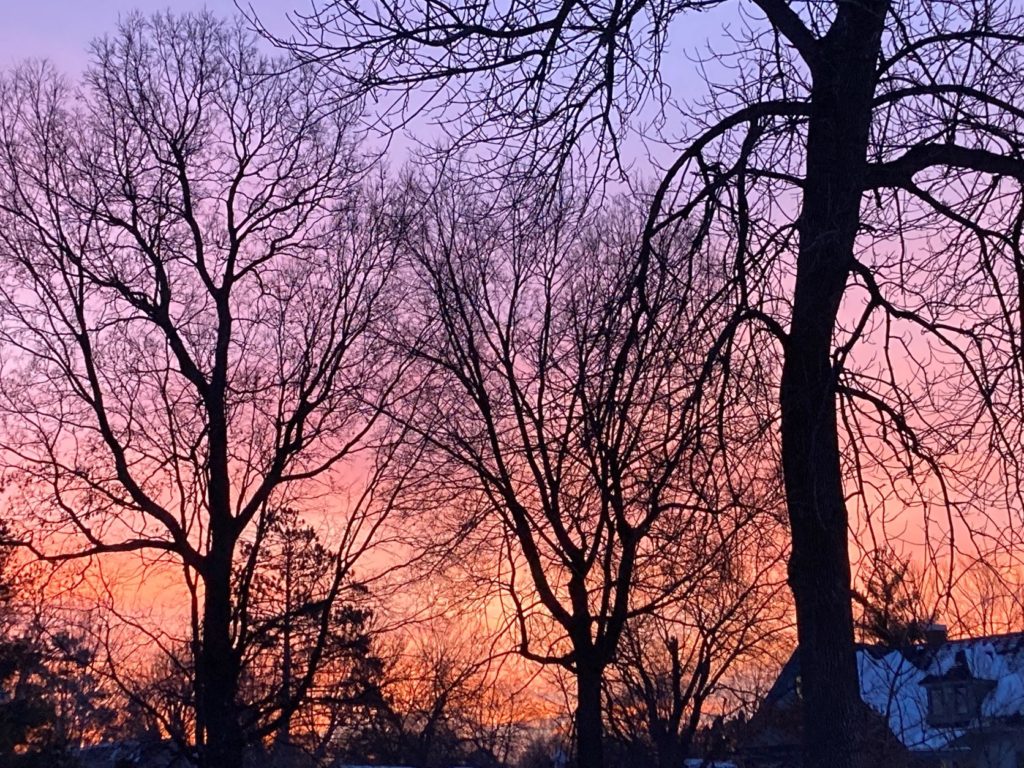
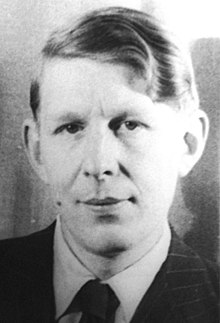
W. H. Auden is a favorite poet of mine. Some years ago, I learned that our former neighbor, Ian Barbour, had, as a boy, had Auden as a teacher. I most recently encountered Auden as a character in the novel about Thomas Mann, The Magician, through Auden’s marriage to Mann’s daughter, Erika. It wasn’t until I wrote today’s poem–about water and memory and ancient limestone walls in my own basement–that I discovered this poem of his. When I read it, I thought of the karst geology of my own home region and loved what he did with his local version of this subject. When I look at these two portraits of him, I see the ideas of memory and erosion splendidly illustrated and alive. I hope you this Whitmanesque poem of his, too.
In Praise Of Limestone
If it form the one landscape that we, the inconstant ones,
Are consistently homesick for, this is chiefly
Because it dissolves in water. Mark these rounded slopes
With their surface fragrance of thyme and, beneath,
A secret system of caves and conduits; hear the springs
That spurt out everywhere with a chuckle,
Each filling a private pool for its fish and carving
Its own little ravine whose cliffs entertain
The butterfly and the lizard; examine this region
Of short distances and definite places:
What could be more like Mother or a fitter background
For her son, the flirtatious male who lounges
Against a rock in the sunlight, never doubting
That for all his faults he is loved; whose works are but
Extensions of his power to charm? From weathered outcrop
To hill-top temple, from appearing waters to
Conspicuous fountains, from a wild to a formal vineyard,
Are ingenious but short steps that a child’s wish
To receive more attention than his brothers, whether
By pleasing or teasing, can easily take.
Watch, then, the band of rivals as they climb up and down
Their steep stone gennels in twos and threes, at times
Arm in arm, but never, thank God, in step; or engaged
On the shady side of a square at midday in
Voluble discourse, knowing each other too well to think
There are any important secrets, unable
To conceive a god whose temper-tantrums are moral
And not to be pacified by a clever line
Or a good lay: for accustomed to a stone that responds,
They have never had to veil their faces in awe
Of a crater whose blazing fury could not be fixed;
Adjusted to the local needs of valleys
Where everything can be touched or reached by walking,
Their eyes have never looked into infinite space
Through the lattice-work of a nomad’s comb; born lucky,
Their legs have never encountered the fungi
And insects of the jungle, the monstrous forms and lives
With which we have nothing, we like to hope, in common.
So, when one of them goes to the bad, the way his mind works
Remains incomprehensible: to become a pimp
Or deal in fake jewellery or ruin a fine tenor voice
For effects that bring down the house, could happen to all
But the best and the worst of us…
That is why, I suppose,
The best and worst never stayed here long but sought
Immoderate soils where the beauty was not so external,
The light less public and the meaning of life
Something more than a mad camp. ‘Come!’ cried the granite wastes,
“How evasive is your humour, how accidental
Your kindest kiss, how permanent is death.” (Saints-to-be
Slipped away sighing.) “Come!” purred the clays and gravels,
“On our plains there is room for armies to drill; rivers
Wait to be tamed and slaves to construct you a tomb
In the grand manner: soft as the earth is mankind and both
Need to be altered.” (Intendant Caesars rose and
Left, slamming the door.) But the really reckless were fetched
By an older colder voice, the oceanic whisper:
“I am the solitude that asks and promises nothing;
That is how I shall set you free. There is no love;
There are only the various envies, all of them sad.”
They were right, my dear, all those voices were right
And still are; this land is not the sweet home that it looks,
Nor its peace the historical calm of a site
Where something was settled once and for all: A back ward
And dilapidated province, connected
To the big busy world by a tunnel, with a certain
Seedy appeal, is that all it is now? Not quite:
It has a worldy duty which in spite of itself
It does not neglect, but calls into question
All the Great Powers assume; it disturbs our rights. The poet,
Admired for his earnest habit of calling
The sun the sun, his mind Puzzle, is made uneasy
By these marble statues which so obviously doubt
His antimythological myth; and these gamins,
Pursuing the scientist down the tiled colonnade
With such lively offers, rebuke his concern for Nature’s
Remotest aspects: I, too, am reproached, for what
And how much you know. Not to lose time, not to get caught,
Not to be left behind, not, please! to resemble
The beasts who repeat themselves, or a thing like water
Or stone whose conduct can be predicted, these
Are our common prayer, whose greatest comfort is music
Which can be made anywhere, is invisible,
And does not smell. In so far as we have to look forward
To death as a fact, no doubt we are right: But if
Sins can be forgiven, if bodies rise from the dead,
These modifications of matter into
Innocent athletes and gesticulating fountains,
Made solely for pleasure, make a further point:
The blessed will not care what angle they are regarded from,
Having nothing to hide. Dear, I know nothing of
Either, but when I try to imagine a faultless love
Or the life to come, what I hear is the murmur
Of underground streams, what I see is a limestone landscape.
May 1948
Background for My Poem for April 4, 2022: “Sifting Through the Basement”:
A flip-book tour of the work-in-progress that is the basement (including the eerie sub-basement that did not make it into the poem.)
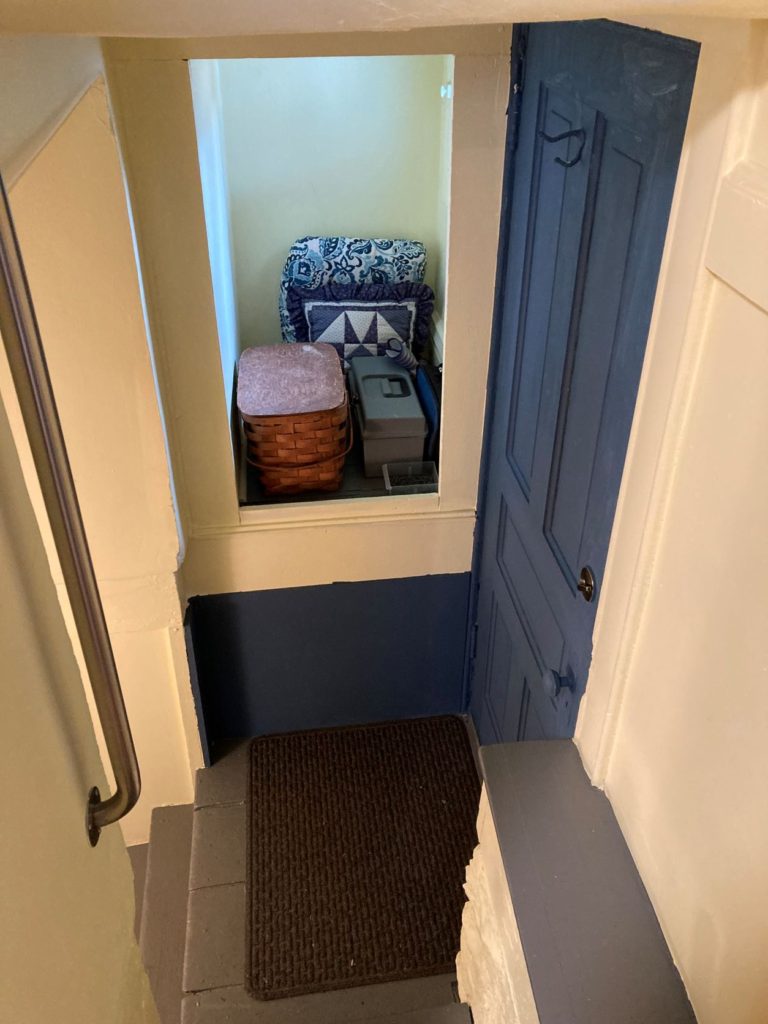
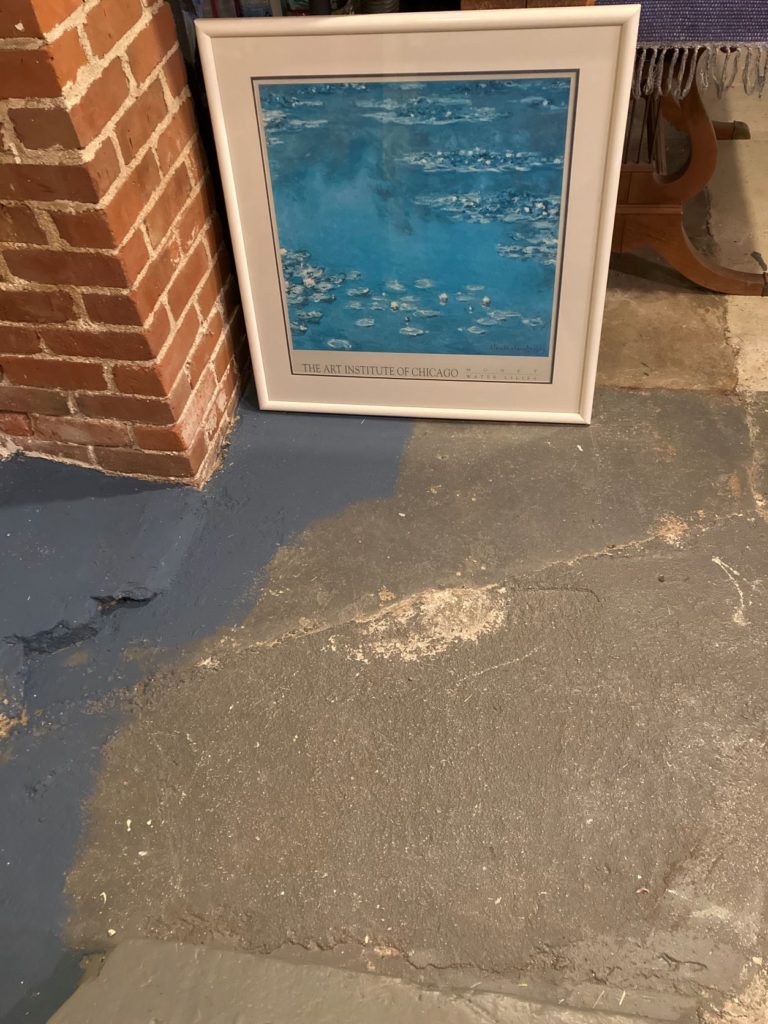

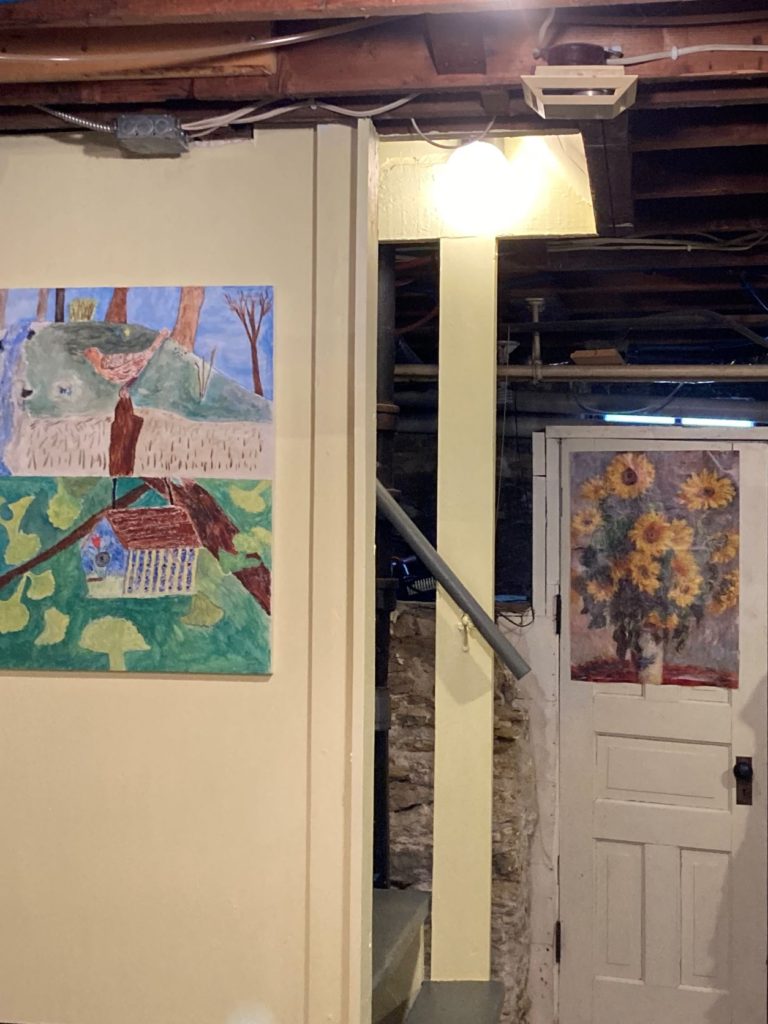
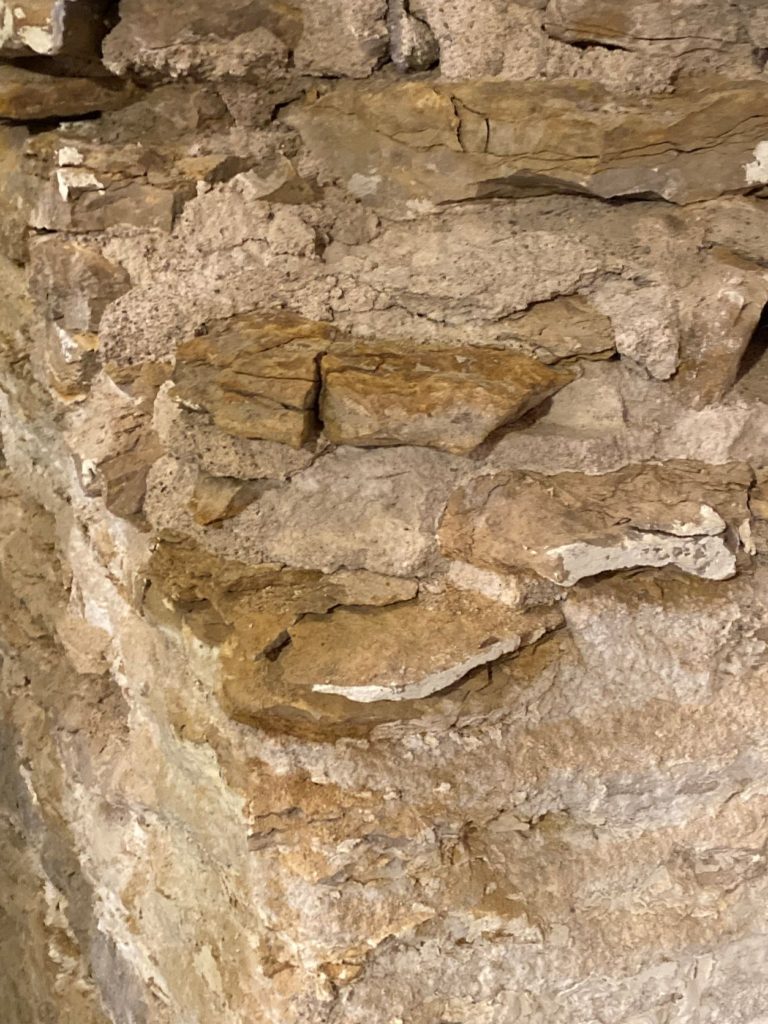
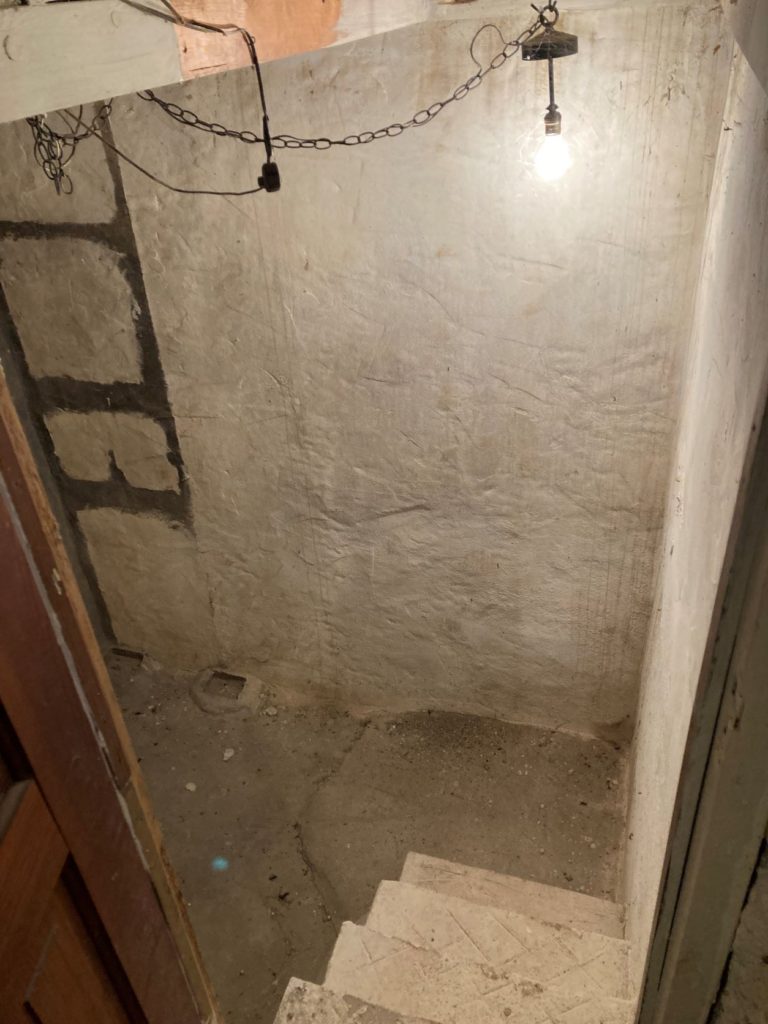
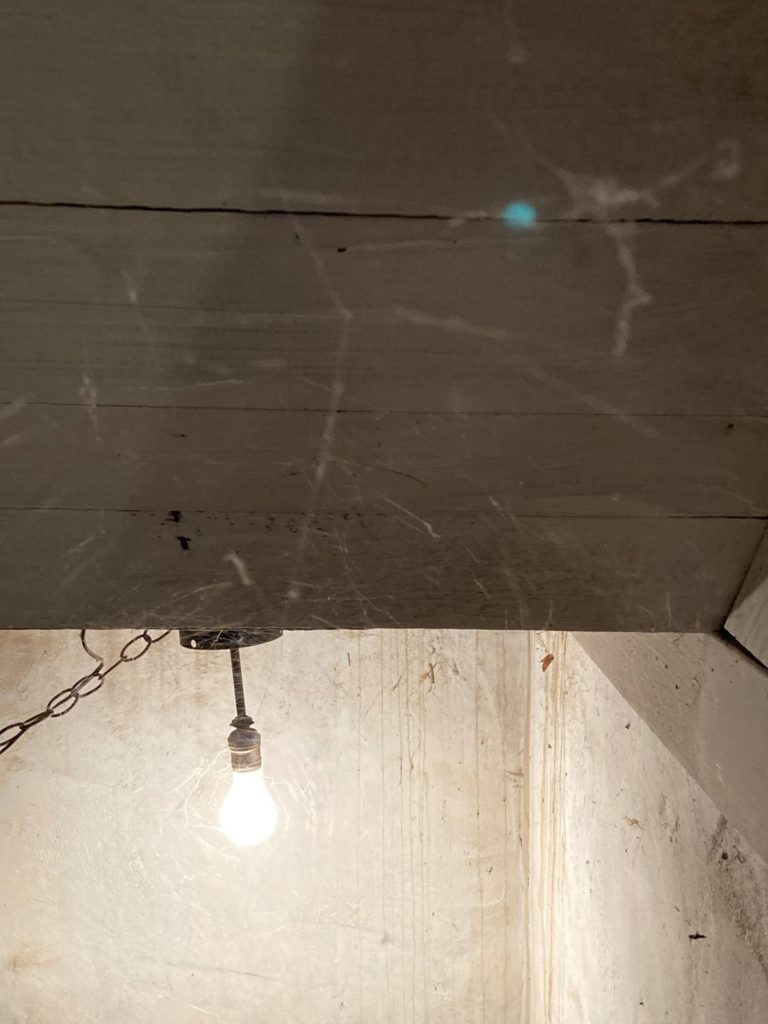

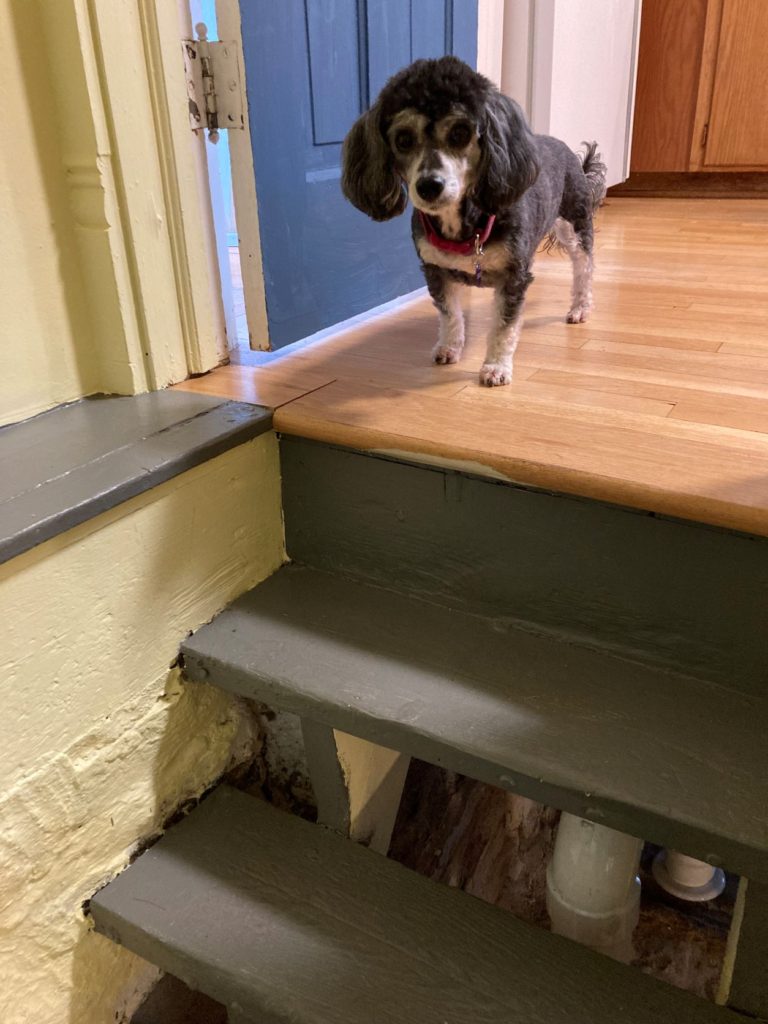
Happy Reading! Happy Writing! LESLIE



